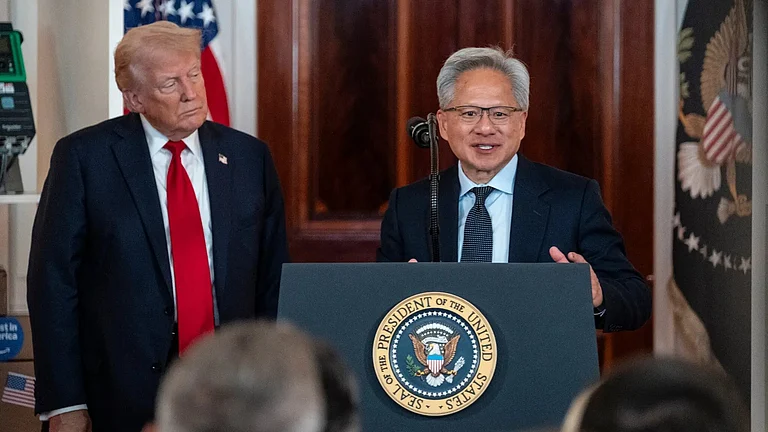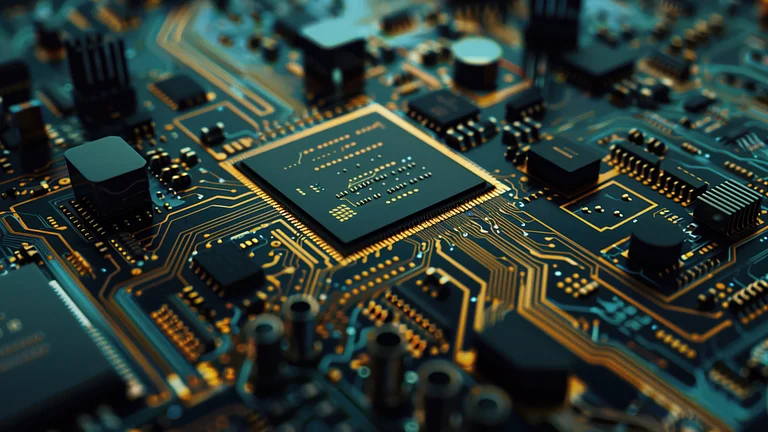Days before Joe Biden moved out of the White House, the US unveiled a set of regulations aimed at restricting the export of artificial intelligence (AI) chips to slow AI advancement in other nations, especially those inimical to American interests. These restrictions, if the Donald Trump administration goes ahead with them, will impact the global AI chip market, including India.
The regulations divide the world in three categories: 18 countries allied to American interests such as the UK, Japan and South Korea on which there are no curbs; 120 nations on which the US has imposed country-caps, such as Saudi Arabia, Singapore, and India; and those countries which are restricted from obtaining these chips altogether—China and Russia.
Additionally, US-headquartered chip providers such as Amazon Web Services and Microsoft are allowed to deploy only half of their AI computing power outside the US—no more than 25% outside of Tier-I countries and no more than 7% in a single non-Tier-I country.
Justifying the curbs, commerce secretary in the Biden administration Gina Raimondo said the measure was taken to preserve America’s leadership in AI and the development of AI-related computer chips. “Managing national security risks requires trade-offs. This rule ensures our allies can access advanced technology while safeguarding our interests,” Raimondo said.
How the Curbs Will Impact India AI Mission
If and when the curbs are executed, they will limit the import of AI chips to India to 50,000 graphic processing units (GPUs) annually. Currently, the government is sourcing around 10,000 GPUs under the India AI Mission, with plans to scale in the future.
India’s government has made a big AI push with a $1.25bn investment over the next five years with the India AI Mission. The government has allocated around 40% of the amount for development of computing infrastructure, including procurement of GPUs.
The curbs may also pose a challenge for companies such as Reliance Industries, which recently ordered Nvidia GPUs. Data centre providers such as Tata Communications, Yotta and E2E Networks, expanding into AI cloud computing, could be at a disadvantage compared to companies in the US.
Indian companies will face new licensing requirements to procure essential supply AI chips, potentially leading to supply shortages and delays in AI projects. The inability to access advanced AI hardware may also raise national security concerns because it will limit the development of robust defence technologies.
Collaborations, such as Reliance and Nvidia’s plan to set up a 1-gigawatt AI data centre in Jamnagar, Gujarat, and Tata Group and Nvidia’s initiative to build large-scale AI infrastructure, may suffer.
Nvidia has criticised the curbs calling them a “sweeping overreach” and said that the move is a clamp down on “technology that is already available in mainstream gaming PCs and consumer hardware”. Data centre provider Oracle argued earlier this month that rules would hand “most of the global AI and GPU market to our Chinese competitors”.
What India Can Do About the Curbs
These curbs come despite the US-India partnership on critical and emerging technology (iCET).
According to reports, the Ministry of Electronics and Information Technology (MeitY) has already initiated discussions with various wings of the government, including National Security Advisor (NSA) Ajit Doval’s office and shared its analysis and concerns.
“We have an iCET framework led by the NSA, so we will address it through that channel. MeitY and the NSA have assessed the implications. While it’s not an immediate crisis, it’s important to raise this as we move forward,” an official told Economic Times.
It is true that this isn’t an immediate crisis, and the Trump administration will take a final call. But if implemented, the curbs could severely hurt India’s AI interests and leave the nation lagging in the AI race.































